Pulau Pangkor : Story of a Fishing Village
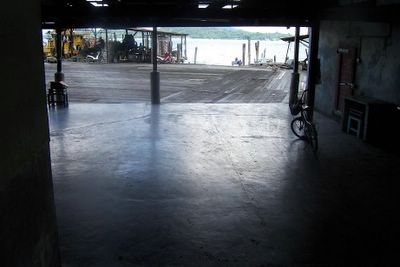
"This boat can’t move as fast as it used to be. Leakage." Soft spoken Uncle Goh must have felt that I am expecting something else, which I’m not. Ah Ne, the Indian helper in his 30s, seems to agreed with Uncle Goh. Surely, falling into those bottomless water is not funny, even if I can swim well.

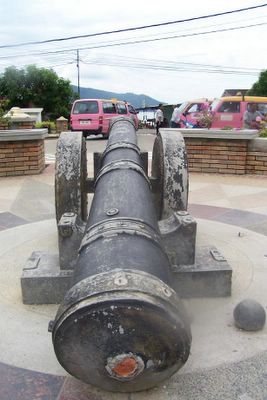
Except for my presence, much like a recorder, everything else is just daily routine for both men. The smell of the salty sea, sounds of the wave hitting the old jetty or the ever changing view as old diesel engine pushing us forward and further away from Pulau Pangkor, cruising through the Melaka Straight. As our boat heading south, bustling Lumut town are on our left, mainland Peninsular Malaysia. Further on we can see Teluk Batik beach and resort, almost directly opposite the old Dutch Fort, dating back to year 1690, in Pangkor island.

On this rather quiet Saturday morning, most of the ships are rested, partly because of Hari Raya holiday, or some fishermen are still mending their nets, prepare for the night catch.
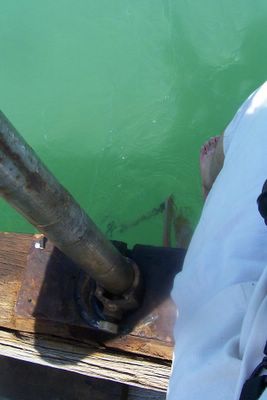
Depends of its main catch, either prawns, ikan bilis, ikan kembung, etc. the physical appearance of boats or ships varies greatly.
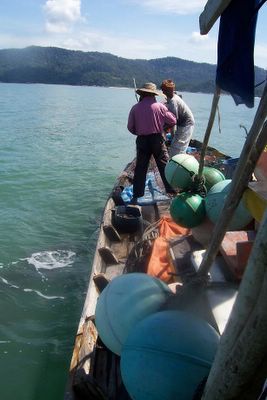
Uncle Goh then explained theories about finding the location of prawns, together with the proper timing of tidal wave to set the nets. All these are changing, with introduction of radar and trawling technologies, or when the peaceful fishing island turned tourist hotspot.
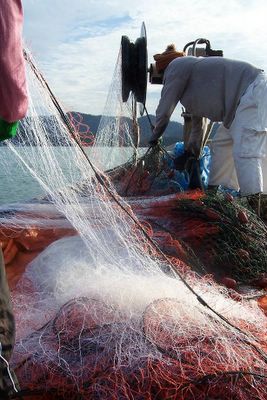
It is about the same time we embrace information revolution, so-called ‘MTV Generation’ slowly finding their way out of the sea, out of the island.
Out, and often never came back.

As a matter of fact, Uncle Goh’s son, Keat is one of them. Hardly finish his high school education, Keat start working in Kuala Lumpur couple years ago. But enough was enough, I guess. Now, his new destination: New Zealand. To be fair to him, I would understand the reason why Keat is not keen on following his father’s footsteps, other than his seasick problem.
Equipped with 3 numbers of gill nets, one Indian helper and a small diesel powered boat, Uncle Goh could hardly earn a marginal daily net income of RM100++, a job more suitable for semi-retired fisherman, perhaps?
 Even that depends on the weather, or the drifting gill nets caught more prawns than so-called cheap fish…Keat can either go to bigger ship, or, bigger island, bigger land.
Even that depends on the weather, or the drifting gill nets caught more prawns than so-called cheap fish…Keat can either go to bigger ship, or, bigger island, bigger land. To make the situation worse, series of new developments and environment issues lined up nicely to make their presence felt. Newly constructed shipping ports and jetties means major dredging works, reclaimed lands, etc. which will forever altered the sea
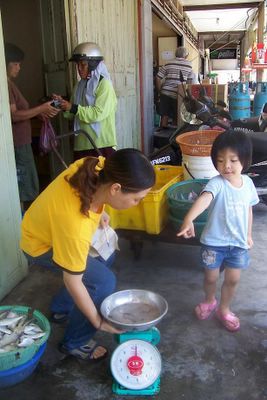 current, let alone its damage on ocean’s flora and fauna. No thanks to the trawling activities, officially banned on costal waters, but sometime, laws are made to be broken? ‘Back in those days, prawns and fishes keep coming back in numbers. But once they start trawling, there’s nothing much to expect.’ After 50 years, some fisherman still wish to go out everyday, with the same passion and excitement he had when he was still a 15 years old boy.
current, let alone its damage on ocean’s flora and fauna. No thanks to the trawling activities, officially banned on costal waters, but sometime, laws are made to be broken? ‘Back in those days, prawns and fishes keep coming back in numbers. But once they start trawling, there’s nothing much to expect.’ After 50 years, some fisherman still wish to go out everyday, with the same passion and excitement he had when he was still a 15 years old boy.Perhaps Uncle Goh already understood and accepted Keat’s decision, having warned him ‘Just remember that no one will wash your clothes out there, you have to manage everything yourself. Don’t tell me I didn’t warn you about that!’ Deep inside, like every traditional Chinese father, he care so much for the son that he would ask all his daughters to keep an eye on Keat.
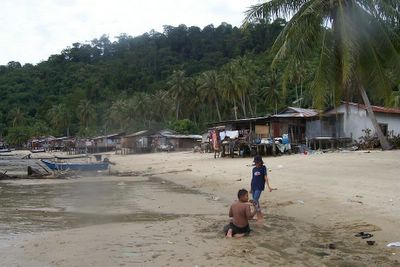
For some time the population on the island stands at 80 percent Chinese, 10 percent Malay and 10 percent Indian, according to Xiao Chen, Uncle Goh’s daughter who doubted that that figure will remains as time goes by. ‘Who knows what will happen next. Maybe in near future the island’s fishermen are all foreign labors like Indonesian!’ As one of the few young and dedicated teachers on the island, Xiao Chen intends to stay and start her own family here. Even if two of her sisters already migrated to Singapore, some years back.
I prayed that she will find her way in, living on the beautiful Pulau Pangkor, for my support will be always there!
More related stories:
Pulau Pangkor : 'Fishman' Begins
Pulau Pangkor : Routine, Fisherman and Fishman
Pulau Pangkor : Bicycle Trip
